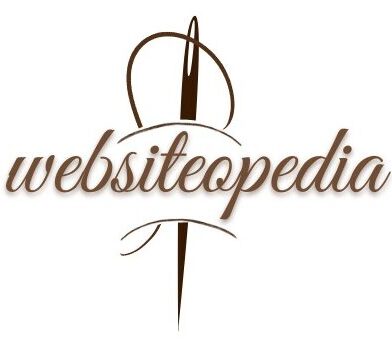The capacity to obtain trustworthy sources is more important than ever in the information-driven society of today. The phrase “Credible Corners” describes an increasing emphasis on locating reliable websites, groups, or sources that provide factual, thoroughly investigated information. Finding reliable online resources may help you make better decisions, save time, and make sure the information you consume is accurate—whether you’re seeking for news, guidance, or product reviews.
What Are Credible Corners?
Credible Corners are locations, online or off, where information is checked for relevance, correctness, and dependability. These resources are unique because they are updated by subject-matter experts and offer thoroughly investigated, fact-checked content. Credible nooks offer a refuge where people can believe what they read, see, or hear in an era of false information and clickbait.
The Importance of Credibility in Information
Misinformation has been rife on the internet in recent years, with unconfirmed content circulating quickly through blogs, social media, and even certain news sources. False information can carry serious hazards, including the potential for miscommunication, poor judgment, and even physical harm. Because of this, people must rely on reliable sources for their news and information.
Reputable sources provide:
Content That Has Been Fact-Checked: Reputable platforms make sure their data is validated and supported by proof.
Expert Insights: To offer analysis or insights, credible corners frequently consult with professionals or experts in particular disciplines.
Balanced Viewpoints: Reputable sources steer clear of bias and sensationalism in favor of impartial, balanced opinions.
How to Identify Credible Corners
Despite the size and abundance of content available on the internet, not all platforms are made equal. The following advice will assist you in recognizing credible corners:
Examine the Reference: Checking the platform or publishing should always come first. Is it widely recognized? Does it have a track record of being accurate? Seek find websites or organizations that are well-known in their domains, such as governmental bodies, reputable news sources, or educational institutions.
creator Expertise: Take into account the content’s creator. Is the author an authority on the topic they’re writing about? Experts with extensive training or experience in the subject matter they are addressing are frequently featured in credible corners.
cites and References: Reputable publications consistently include cites and references to support their assertions. Content or articles that rely too heavily on ambiguous references or missing sources may not be reliable.
Updated Information: Reputable sources make sure their material is current. Make sure the content is still accurate and current by always looking up the publishing date.
Fair Reporting: Reputable sources offer a variety of perspectives while avoiding prejudice. Seek information that gives you the opportunity to consider all sides of a topic and create your own conclusions.
Examples of Credible Corners
Certain websites have gained a reputation for being reliable and are frequently referred to as “credible corners” on the internet. Among them are:
Academic publications: Among the most trustworthy sources of knowledge in science and academia are peer-reviewed publications. Before being published, they undergo thorough inspection.
reputable news sources: Companies with established fact-checking procedures, such as Reuters, The New York Times, and the BBC, have earned a reputation for providing trustworthy news.
Nonprofit Organizations: Organizations like Amnesty International and the World Health Organization (WHO) offer impartial analysis and reliable data on world affairs.
Benefits of Relying on Credible Corners
Selecting reliable sources for your data has several advantages. It saves time and effort that would otherwise be used for content verification or cross-checking, first and foremost. Whether you’re making decisions about your schooling, finances, or health, using trustworthy platforms will also give you more confidence when making decisions. Furthermore, having correct knowledge at your disposal enables you to stay up to date on significant topics, which facilitates intelligent discourse and wise decision-making.
When utilized properly, credible corners are priceless resources for maintaining knowledge, avoiding the dangers of false information, and increasing our level of trust in the media we consume.
Conclusion
Discovering reliable sources is essential for people who want to keep updated with correct information in a world where false information is often spread. Relying on reliable sources is crucial while searching for news, professional advice, or educational materials. You can be certain that the information you take in and distribute is correct, dependable, and worthwhile by developing your ability to recognize and use credible corners. Quality overrides quantity in this day of information overload, and reliable sources provide the comfort of knowing you’re obtaining the greatest information out there.
FAQs
How can I determine the legitimacy of a website?
Verify the author’s credentials, the domain, the references, and the fact-checking of the content. Seek out websites that are well-known and reliable in their industry.
Can social media sites be regarded as reliable sources?
Even though some social media sites have reliable content, rigorous fact-checking is frequently absent from them. Prior to taking information at face value, it is best to confirm it with reliable outside sources.
What function do specialists serve in reliable areas?
Experts are important because they offer trustworthy, knowledgeable opinions and analysis. Credibility is increased for content produced or recommended by reputable authorities.
Is Wikipedia a trustworthy source?
Wikipedia is an excellent resource, but because it is open to revision, it shouldn’t be your only source. Information from Wikipedia should always be cross-referenced with original or peer-reviewed sources.
What makes consuming content from reliable sources important?
Relying on reliable information promotes a comprehensive grasp of significant subjects, stops the spread of false information, and aids in the making of informed judgments.











